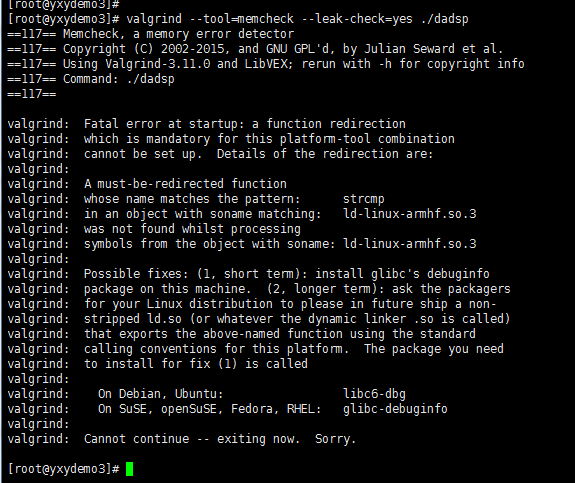Tool/software: Linux
We find a mem leak problem in our application.
Since we can not locate it, we decide to use valgrind to locate where the leak is.
We have successfully compiled valgrind in our platform, but when the application runs, error come out
It seems that the glibc debuginfo is not found.
-----------------------
So how to use valgrind in psdk3.0
Or Is there any other way to detect mem leak?


